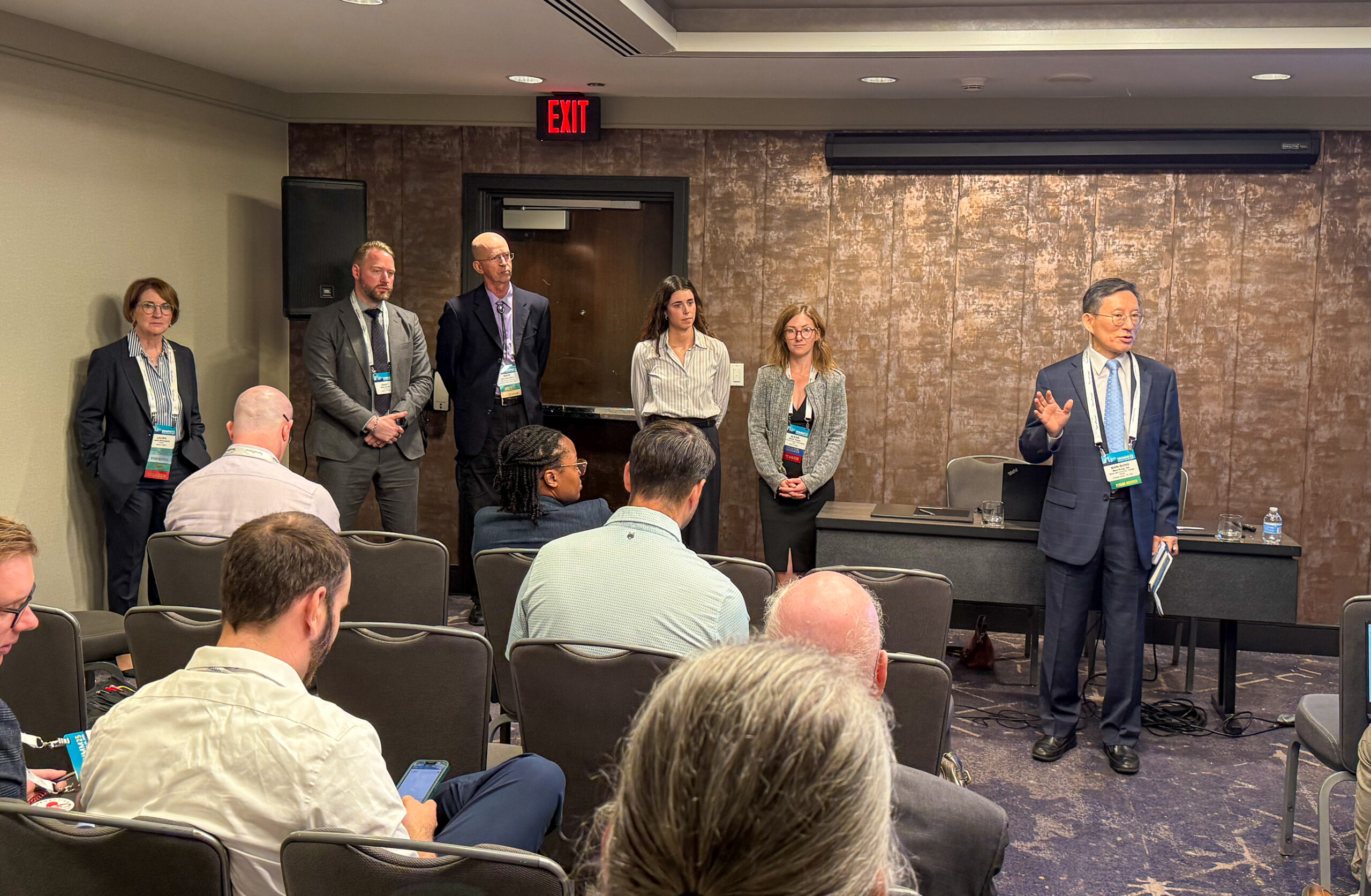On August 24, NSSPI conducted a workshop on the Policy and Technical Fundamentals of International Nuclear Safeguards in conjunction with the Annual Meeting of the Institute of Nuclear Materials Management (INMM) in Washington, D.C. The workshop included both online and in-person components. Participants first completed an online certificate program on nuclear safeguards, then attended an in-person session featuring presentations and discussions with safeguards experts.

The in-person session at the INMM Annual Meeting featured speakers from the International Atomic Energy Agency (IAEA), the Vienna Center for Disarmament and Non-Proliferation (VCDNP), U.S. national laboratories, the nuclear industry, and the National Nuclear Security Administration (NNSA).
 Laura Rockwood, a non-resident senior fellow at the Vienna Center for Disarmament and Non-Proliferation (VCDNP), drew on her many years of experience as a senior legal advisor on safeguards at the IAEA to give an engaging overview of the history and development of IAEA safeguards. As she was personally involved in creating and negotiating many of the Agency’s safeguards agreements, Rockwood was able to share unique insights into how these agreements shaped international nonproliferation efforts.
Laura Rockwood, a non-resident senior fellow at the Vienna Center for Disarmament and Non-Proliferation (VCDNP), drew on her many years of experience as a senior legal advisor on safeguards at the IAEA to give an engaging overview of the history and development of IAEA safeguards. As she was personally involved in creating and negotiating many of the Agency’s safeguards agreements, Rockwood was able to share unique insights into how these agreements shaped international nonproliferation efforts.
 Following her, Alexis Trahan, a safeguards technical specialist at the IAEA focusing on safeguards approaches and safeguards-by-design for advanced reactors, discussed current topics and challenges facing IAEA safeguards in light of new technologies and novel deployments of facilities and reactors. She specifically covered issues related to commercial maritime safeguards, safeguarding advanced reactors, and safeguards approaches for fusion reactors.
Following her, Alexis Trahan, a safeguards technical specialist at the IAEA focusing on safeguards approaches and safeguards-by-design for advanced reactors, discussed current topics and challenges facing IAEA safeguards in light of new technologies and novel deployments of facilities and reactors. She specifically covered issues related to commercial maritime safeguards, safeguarding advanced reactors, and safeguards approaches for fusion reactors.
 Grant Spence, a former IAEA nuclear safeguards inspector and now the program manager for nuclear material control, accounting, and international safeguards at TerraPower, gave a presentation on safeguards for advanced reactors. He discussed specific challenges related to several emerging reactor designs, including some of those being developed by Small Modular Reactor companies such as TerraPower.
Grant Spence, a former IAEA nuclear safeguards inspector and now the program manager for nuclear material control, accounting, and international safeguards at TerraPower, gave a presentation on safeguards for advanced reactors. He discussed specific challenges related to several emerging reactor designs, including some of those being developed by Small Modular Reactor companies such as TerraPower.
 In his presentation, Mark Schanfein, a senior nonproliferation advisor at Idaho National Laboratory, drew on his extensive experience in nuclear nonproliferation, including work at several national laboratories and at the IAEA, where he oversaw the installation of unattended autonomous monitoring systems in facilities worldwide. He discussed challenges related to data in safeguards monitoring and examined how artificial intelligence and machine learning could help simplify and enhance the surveillance of nuclear facilities.
In his presentation, Mark Schanfein, a senior nonproliferation advisor at Idaho National Laboratory, drew on his extensive experience in nuclear nonproliferation, including work at several national laboratories and at the IAEA, where he oversaw the installation of unattended autonomous monitoring systems in facilities worldwide. He discussed challenges related to data in safeguards monitoring and examined how artificial intelligence and machine learning could help simplify and enhance the surveillance of nuclear facilities.
 Finally, Bego Aranguren, federal program manager for the Advanced Reactor International Safeguards Engagement (ARISE) Program at the NNSA, provided an overview of the ARISE program and its role in facilitating the implementation and global deployment of U.S. advanced nuclear technologies through engagement, education, and research initiatives.
Finally, Bego Aranguren, federal program manager for the Advanced Reactor International Safeguards Engagement (ARISE) Program at the NNSA, provided an overview of the ARISE program and its role in facilitating the implementation and global deployment of U.S. advanced nuclear technologies through engagement, education, and research initiatives.
The workshop was well received by nearly 50 participants who attended the in-person session, most of whom were students or early-career professionals seeking to deepen their understanding of nuclear safeguards. The speakers also participated in a panel discussion moderated by NSSPI Director Mansung Yim, in which they answered numerous questions from attendees. Over 15 participants completed the 30 hours of required online training and earned professional certificates and CEUs.
This marks the fourth workshop of this kind conducted by NSSPI through INMM.